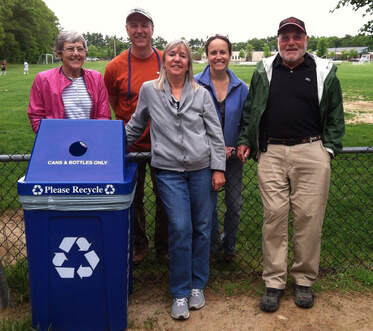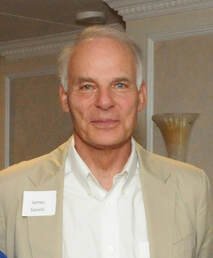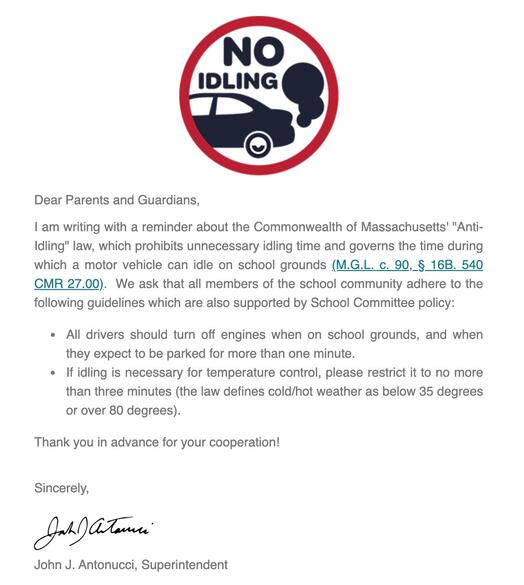Zero Carbon HomeNet-zero carbon homes save money, improve health and substantially cut emissions of carbon dioxide. Physicist and author David Green has cut the carbon dioxide emissions of his house (and pool) to zero, pays nothing for heating or electricity and his family's indoor air is clean and fresh. By following his “Fab Four” recipe you can do it too and help the country get to net-zero carbon by 2050. David did this by adding heat pumps, insulation, triple-glazed windows and solar panels (the “Fab Four”). By installing the Fab Four he is saving so much money on heating and electricity bills that his investments will pay for themselves in about six years.
To see a video of this presentation: https://youtu.be/qDaeV_HwCDU Remembering Dick RothschildWe have lost another person very special to us. Co-founder of Sustainable Duxbury, along with Jim Savicki, Dick Rothschild has passed away after a wonderfully long life of 97 years. While Dick lived in Duxbury he became very active working on causes very dear to him. He worked on the Grounds Committee of the Duxbury Rural and Historical Society and he was also involved in the Open Space Committee. He was a member and then chair of the Duxbury Sidewalk and Bike Path Committee where he worked on plans for a bike path from the Chandler School to the school campus on St. George street. He started a weekend bike group that is still going strong where he ran and coordinated many of the group's biking trips to Europe. He wrote a column for the Duxbury Clipper, "Thinking Green." He was a man of many interests and many friends.
In this photo, Dick on the right is shown with other members of Sustainable Duxbury when we all worked on getting recycling bins for the town. He will be missed by so many. He is a model of how to live a full life. In Memoriam: Jim SavickiIt is with sadness we let you know that Sustainable Duxbury has lost a friend and leader. Jim Savicki passed away on November24, way too early. Jim was a devoted environmentalist and worked hard on all our projects. He was very proud of the solar panels that were installed at Chandler School which was one of his early victories. He was the architect of this group and worked on the "Pay as you Throw" system to help combat trash for the town. You would have seen him every spring through fall working on our Community Garden that he took such pride in. He was always there for every meeting, every project, and stubbornly fought the good fight for our earth. He will be missed by all of us.
Every day is Earth Day 2020Go to the official Earth Day website for inspiration: www.earthday.org 2020 Environmental Leadership Award Cancelled for this year. Stay tuned for 2021
|
Straws, the movie was shown Thursday, January 17, to full room at the library. For all those who want to do more after seeing this presentation, please download some information about what you can do.
Sustainable Duxbury Announces Recipients of the
Environmental Leadership Award 2018
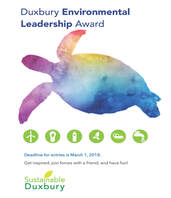
The Duxbury Environmental Leadership Award celebrates the ideas and actions of young environmentalists who demonstrate initiative, leadership, and a desire to improve the local and global environment. Possible award categories include recycling and composting; the protection of endangered species; climate change and sea level rise; energy or water conservation; and renewable energy.
Click here for this year's recipients.
Sustainable Duxbury’s mission is to encourage people in town and the group’s own membership to become more sustainable by informing the community about ways to recycle, save energy, and improve the local environment.
Click here for this year's recipients.
Sustainable Duxbury’s mission is to encourage people in town and the group’s own membership to become more sustainable by informing the community about ways to recycle, save energy, and improve the local environment.
A Plastic Ocean
Thanks to everyone for coming to our showing of A Plastic Ocean. We had a very well attended program! Thanks to DBMS for their wonderful venue and support. Now let's all aspire to reduce the amount of plastic we use in our daily lives.
The film is available on Netflix as a DVD. You can also purchase your own DVD. Go to their website, plasticocean.org, where you will find more information. There is also a lot of information about plastic pollution and what we can do. We are also sponsoring a showing of the shorter version of this film to the Duxbury schools.
The film is available on Netflix as a DVD. You can also purchase your own DVD. Go to their website, plasticocean.org, where you will find more information. There is also a lot of information about plastic pollution and what we can do. We are also sponsoring a showing of the shorter version of this film to the Duxbury schools.
Town meeting passes article 42, to ban single use plastic bags!
Article 42 was approved at town meeting. Thank you to all who came out and voted. This makes us one of over 55 towns in Massachusetts to have passed such a ban. It is a step towards living with less plastic.
We Let the Sun Shine Again!

A Panel on Solar Panels
Sustainable Duxbury along with the Duxbury Free Library presented a Solar Panel Discussion on March 23, 2017. Here is a recap from PCN, PACTV Community News. Thanks to them for good reporting.
Rep. Josh Cutler gave us a legislative update and the current incentives for Massachusetts residents.
Vikram Aggarwal, Chief Executive, EnergySage: Discussed 3 Solar Options: Buying, Leasing and Community Solar. You can visit their website do your own research: www.energysage.com.
Mark Lampman, Energy Consultant, Vivint Solar: Solar implications when buying or selling your home.
Anna Stern, Massachusetts Clean Energy Center: Financing Options. You can also go to their website for more information about incentives and much, much more.
Click here to see a clip on PACTV from last year's panel and check out our blog for a run down of last year's presentation as written in the Duxbury Clipper.
Sustainable Duxbury along with the Duxbury Free Library presented a Solar Panel Discussion on March 23, 2017. Here is a recap from PCN, PACTV Community News. Thanks to them for good reporting.
Rep. Josh Cutler gave us a legislative update and the current incentives for Massachusetts residents.
Vikram Aggarwal, Chief Executive, EnergySage: Discussed 3 Solar Options: Buying, Leasing and Community Solar. You can visit their website do your own research: www.energysage.com.
Mark Lampman, Energy Consultant, Vivint Solar: Solar implications when buying or selling your home.
Anna Stern, Massachusetts Clean Energy Center: Financing Options. You can also go to their website for more information about incentives and much, much more.
Click here to see a clip on PACTV from last year's panel and check out our blog for a run down of last year's presentation as written in the Duxbury Clipper.
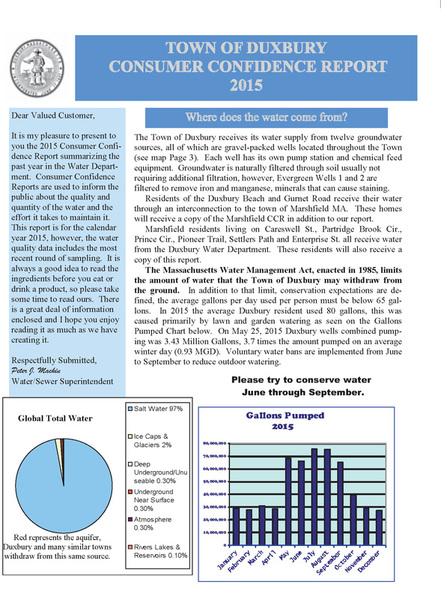
Report from our presentation by the Water Department
The Duxbury Water Department has 12 wells (all drawing from the South Coastal Aquifer), 11 full time employees, 3 million gallons of water storage and is self funding based on water use fees.
The Mass DEP recently decreased the municipal water pumping cap state wide for town water permits. All town water permits now call for a max of 65 gallons per capita, down from the previous 80 gallons per capita. Duxbury has 2 years to meet the new per capita goal.
Our water department feels that the cuts are unreasonable and are concerned that Duxbury will be unable to stay under the cap during the summer months unless outside water use is severely restricted and conservation policies adopted. They plan to work on water conservation education and more policing of water use restrictions. The DEP applies the functional equivalent of “fines” on towns that do not meet the cap by forcing them to spend money on water system improvements. The cap only applies to town pumping — water pumped out of the aquifer from private wells does not count toward the DEP cap.
While this year’s water level monitoring at our wells showed record lows (probably due to the drought), Peter and George believe our aquifer is in good shape. George emphasized that 80% of the water the town pumps is returned to the ground through our private septic systems. We also get a lot of rain (George says almost 60”; Mass DEP says 42-47”) and that a large portion of that water filters into the aquifer. George and Peter are not concerned about the potential impact of private water pumping on our aquifer, even for large users (e.g. North Hill Golf Course, Town sporting fields). Peter is more worried about water quality than quantity.
Neither George nor Peter has been able to learn why the cap was decreased for us (except DEP’s desire to simplify permitting by having the same cap for all Mass towns) nor how the value of 65 gallons per capita was chosen. One of DEP’s rationales for lowering the cap is to aid cold water fisheries (e.g. herring runs), but Duxbury’s pumping has no impact on these.
When asked how SusDux can help, Peter asked for our support at Town Meeting for funding of better filtering at some wells.
For additional information, here is the report on our aquifer from Mass DEP and USGS.
The Duxbury Water Department has 12 wells (all drawing from the South Coastal Aquifer), 11 full time employees, 3 million gallons of water storage and is self funding based on water use fees.
The Mass DEP recently decreased the municipal water pumping cap state wide for town water permits. All town water permits now call for a max of 65 gallons per capita, down from the previous 80 gallons per capita. Duxbury has 2 years to meet the new per capita goal.
Our water department feels that the cuts are unreasonable and are concerned that Duxbury will be unable to stay under the cap during the summer months unless outside water use is severely restricted and conservation policies adopted. They plan to work on water conservation education and more policing of water use restrictions. The DEP applies the functional equivalent of “fines” on towns that do not meet the cap by forcing them to spend money on water system improvements. The cap only applies to town pumping — water pumped out of the aquifer from private wells does not count toward the DEP cap.
While this year’s water level monitoring at our wells showed record lows (probably due to the drought), Peter and George believe our aquifer is in good shape. George emphasized that 80% of the water the town pumps is returned to the ground through our private septic systems. We also get a lot of rain (George says almost 60”; Mass DEP says 42-47”) and that a large portion of that water filters into the aquifer. George and Peter are not concerned about the potential impact of private water pumping on our aquifer, even for large users (e.g. North Hill Golf Course, Town sporting fields). Peter is more worried about water quality than quantity.
Neither George nor Peter has been able to learn why the cap was decreased for us (except DEP’s desire to simplify permitting by having the same cap for all Mass towns) nor how the value of 65 gallons per capita was chosen. One of DEP’s rationales for lowering the cap is to aid cold water fisheries (e.g. herring runs), but Duxbury’s pumping has no impact on these.
When asked how SusDux can help, Peter asked for our support at Town Meeting for funding of better filtering at some wells.
For additional information, here is the report on our aquifer from Mass DEP and USGS.
Our Series, Brown is the New Green, was presented in partnership with the
Duxbury Free Library.

Dirt: The Movie was presented March 19 at 7:00 at the Duxbury Free Library.
Click here to view more information about the movie.
Click here to view more information about the movie.
A panel discussion was presented February 26 at 7:00 PM. Watch a presentation here by PACTV that will tell you all about this wonderful presentation. We had a great evening dishing the dirt with some great dirt professionals.
Chasing Ice came to the Duxbury Free Library January 30, 2014
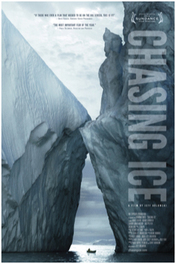
We had a great showing of this amazing documentary. We had the privilege of having Dr. Sarah Das join us for a discussion following the film.
DVDs of the movie are available at the library and from Sustainable Duxbury. You can contact us at [email protected].
I'm sure a lot of people left wondering what now. Go to the Chasing Ice website where you read more about the film. They also list some things we can all do now. Click here for that information. I have also posted this information on our blog.
Watch the trailer here.
DVDs of the movie are available at the library and from Sustainable Duxbury. You can contact us at [email protected].
I'm sure a lot of people left wondering what now. Go to the Chasing Ice website where you read more about the film. They also list some things we can all do now. Click here for that information. I have also posted this information on our blog.
Watch the trailer here.
We brought Switch to the Duxbury Free Library
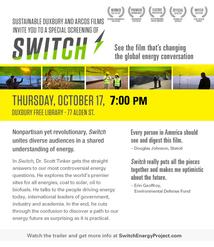
This movie was well attended and very informative for all. The DVD is now available for distribution through the Library's DVD collection, a gift of Sustainable Duxbury. A representative of NStar was on hand to inform all about all the energy saving programs available through NStar. Go to NStar.com for more information about Mass Save Home Energy Services, Energy Star Lighting and Products, and other cost saving programs. The Library also has available energy meters so you can track your home energy use.
Every energy resource — fossil, nuclear and renewable — is undergoing profound changes. And overall, we're gradually shifting from coal and oil to the energies of tomorrow.
This sweeping transition is the subject of Switch. But rather than advocate for how it should happen, Switch travels the world to discover how it most likely will happen.
Every energy resource — fossil, nuclear and renewable — is undergoing profound changes. And overall, we're gradually shifting from coal and oil to the energies of tomorrow.
This sweeping transition is the subject of Switch. But rather than advocate for how it should happen, Switch travels the world to discover how it most likely will happen.
Recycling at Coppens Field
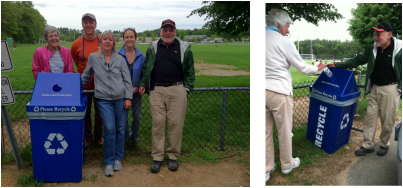
Sustainable Duxbury has installed four new recycling bins on Coppens Field at Chandler School. These beautiful new, bright blue bins will help to keep our fields free of bottles and plastic. They are for cans and bottles only. We encourage all to use these new bins. If you see a bottle or can, throw it in the bin. Let's help to get our bottles and cans out of the trash and into the recycling stream.
"Great Migrations"
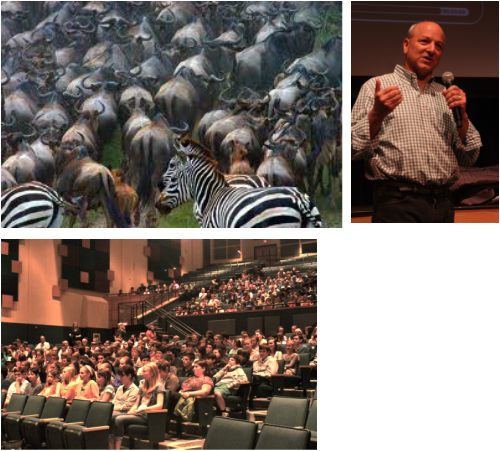
Thursday, May 9, 2013, we had a fantastic presentation by David Hamlin, National Geographic director-producer of “Great Migrations,” a stunning revelation of the extraordinary migrations of animals across the globe. The seven part series which took three years to film, spans 20 countries on all seven continents and it received two Emmy Awards.
An afternoon presentation was done for the middle school students. Cheryl Lewis, Science Director for Duxbury schools, worked with Sustainable Duxbury to coordinate this presentation. In the evening, we had a program for the community. The film and the stories behind the filming, along with David's informative presentation, was mesmerizing. He took us to Africa for the wildebeest migration; to the Guadalupe Biosphere Reserve to swim with white sharks; to Mali for the elephant migration; and to Christmas Island for the breeding and migration of the red crabs. He spoke about how the changes in the environment can affect these very important balances in nature. There is a possibility of Tanzania building a road right through the Serengeti which would very much disrupt the migration of the wildebeests and zebras and affect all the animals that depend upon this migration. You can go to Stop the Serengeti Highway on Facebook to find out how you can help prevent this. He spoke about the encroaching Sahara Desert along with the changing climate and how this will affect how well the elephant do in their arduous journey. The population of red crabs of Christmas Island in the Indian Ocean, was almost depleted with the introduction of destructive ants that arrived on the island on cargo ships. This speaks to the introduction of invasive species that can harm the local, indigenous environment.
Click here for a book about this series. There is also curriculum material available for educators. Click here.
Click here for the DVD.
An afternoon presentation was done for the middle school students. Cheryl Lewis, Science Director for Duxbury schools, worked with Sustainable Duxbury to coordinate this presentation. In the evening, we had a program for the community. The film and the stories behind the filming, along with David's informative presentation, was mesmerizing. He took us to Africa for the wildebeest migration; to the Guadalupe Biosphere Reserve to swim with white sharks; to Mali for the elephant migration; and to Christmas Island for the breeding and migration of the red crabs. He spoke about how the changes in the environment can affect these very important balances in nature. There is a possibility of Tanzania building a road right through the Serengeti which would very much disrupt the migration of the wildebeests and zebras and affect all the animals that depend upon this migration. You can go to Stop the Serengeti Highway on Facebook to find out how you can help prevent this. He spoke about the encroaching Sahara Desert along with the changing climate and how this will affect how well the elephant do in their arduous journey. The population of red crabs of Christmas Island in the Indian Ocean, was almost depleted with the introduction of destructive ants that arrived on the island on cargo ships. This speaks to the introduction of invasive species that can harm the local, indigenous environment.
Click here for a book about this series. There is also curriculum material available for educators. Click here.
Click here for the DVD.



